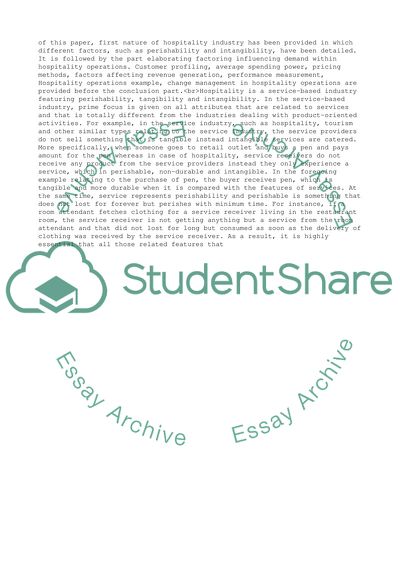Cite this document
(Hospitality operations management Assignment Example | Topics and Well Written Essays - 3000 words, n.d.)
Hospitality operations management Assignment Example | Topics and Well Written Essays - 3000 words. https://studentshare.org/management/1855012-hospitality-operations-management
Hospitality operations management Assignment Example | Topics and Well Written Essays - 3000 words. https://studentshare.org/management/1855012-hospitality-operations-management
(Hospitality Operations Management Assignment Example | Topics and Well Written Essays - 3000 Words)
Hospitality Operations Management Assignment Example | Topics and Well Written Essays - 3000 Words. https://studentshare.org/management/1855012-hospitality-operations-management.
Hospitality Operations Management Assignment Example | Topics and Well Written Essays - 3000 Words. https://studentshare.org/management/1855012-hospitality-operations-management.
“Hospitality Operations Management Assignment Example | Topics and Well Written Essays - 3000 Words”. https://studentshare.org/management/1855012-hospitality-operations-management.


